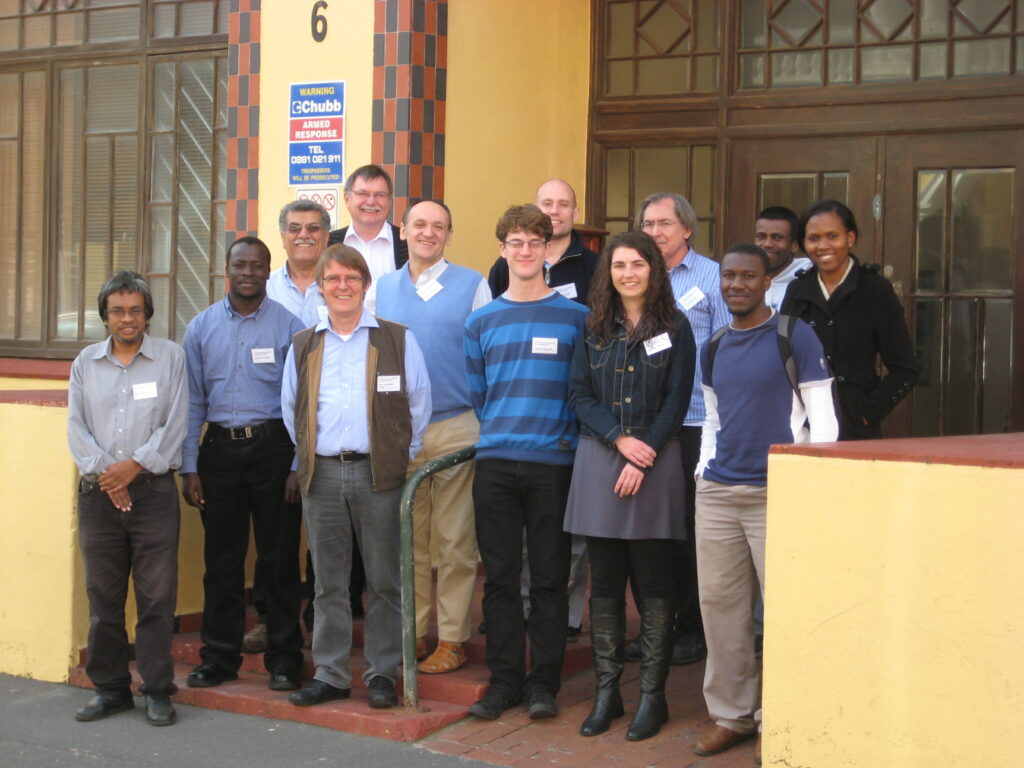TOWARDS THE CLASSIFICATION OF REAL SINGULARITIES USING SINGULAR
26 to 30 September 2011
Abstract
The classification of singularities by Arnold [2] over the field of real and complex numbers was a very important result not only in singularity theory and algebraic geometry. It had a great influence to many other fields as dynamical systems and theoretical physics. The aim of the joint AIMS-TU Kaiserslautern Workshop is to understand the results of Arnold in the real case. This is the systematic classification of functions (resp. hypersurface singularities) with respect to right equivalence (resp. contact equivalence) over the field of real numbers for small modality (say up to right modality 2). Arnold introduced the concept of “modality”, related to Riemann’s idea of moduli, into singularity theory and classifed all singularities of right modality 2 (and also of Milnor number 16).
The singularities of modality 0 are the famous ADE-singularities. Modality and Milnor number are important invariants in singularity theory.To obtain results in an efficient way for the applications one needs to use a computer. There exists already a SINGULAR library ”classify.lib”[4] which, for a given polynomial, computes its type in Arnold’s classification over the complex numbers. For the field of real numbers, a corresponding library for applications, in singularity theory, algebraic geometry and other fields needs to be written and this is one of the objectives of the meeting.
[1] Arnold, V.I.: Normal form of functions near degenerate critical points. Russian Mth. Surveys 29 ii (1975), 10-50.
[2] Arnold, V.I.; Gusein-Zade, S.M., Varchenko, A.N.: Singularities of Differential Maps. Vol. I, Birkhauser (1985).
[3] Wall, C.T.C.: Classification of Unimodal Isolated Singularities of Complete Intersections. In: Singularities, Arcata 1981 (Ed. Orlik, P.), Proceedings Sympos. Pure Math. 40 (2), 625{640 (1983)
[4] Decker, W., Greuel, G.-M., Pfister, G., Schoenemann, H.: SINGULAR – A Computer Algebra System for Polynomial Computations. Free software under the GNU General Public Licence (1990 – to date).
- Prof Wolfram Decker
- Prof Gerd-Martin Greuel
- Prof Ignacio Luenga
- Dr Andreas Steenpass
Postgraduate MSc, PhD, students and young researchers with an algebra background interested in learning about computational applications. Participants must be based in South Africa. Registration is limited to 30 participants only.
African Institute for Mathematical Sciences, 6 Melrose Road, Muizenberg
Academic Staff – R1,100
Fees will be waived, upon application, for bona-fide full-time students at South African universities. Registration fees include lunches and refreshments during the duration of the workshop.
Applications will be treated on a first come, first served basis, and numbers are limited. To apply, download the registration form and email it to the address below.
Registration closes Friday, 2 September 2011.
Registration, Administration and Logistics: Rene January workshops@aims.ac.za

